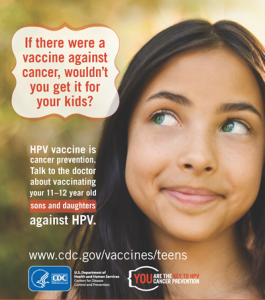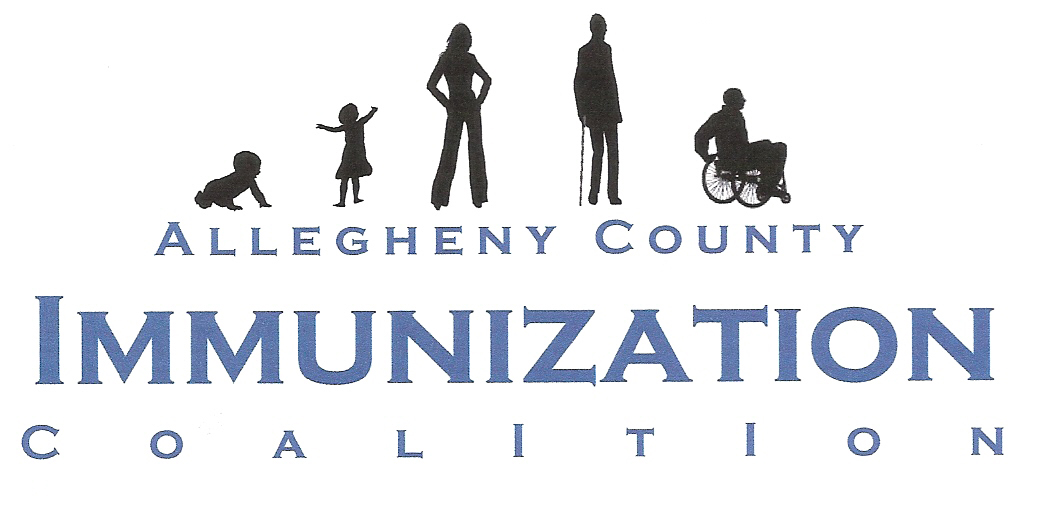On Wednesday, July 13, 2016 the Allegheny County Board of Health rejected a move to mandate the human papillomavirus (HPV) vaccine for adolescents to stay in school, but the Board did approve an education and information measure to enhance efforts to boost inoculation rates in the county.
- View/Download Allegheny County Board of Health Chairman Dr. Lee Harrison’s Presentation on HPV Vaccine
- View/Download a Transcript of the June 22 HPV Public Forum
- View/Download a Summary of all Public Comments Received by ACHD from June 22 thru July 12, 2016
ACIC has put together this HPV Q&A to help parents learn the facts about this important vaccine.
What is HPV?
HPV is short for human papillomavirus.
HPV is a group of more than 150 related viruses. Each HPV virus in this large group is given a number which is called its HPV type. HPV is named for the warts (papillomas) some HPV types can cause.
Some other HPV types can lead to cancer, especially cervical cancer.
There are more than 40 HPV types that can infect the genital areas of males and females. But there are vaccines that can prevent infection with the most common types of HPV.
How do people get HPV?
HPV is transmitted through intimate skin-to-skin contact. You can get HPV by having vaginal, anal, or oral sex with someone who has the virus. It is most commonly spread during vaginal or anal sex. HPV is the most common sexually transmitted infection (STI). Anyone who is sexually active can get HPV, even if you have had sex with only one person. HPV is so common that nearly all sexually active men and women get it at some point in their lives. HPV can be passed even when an infected person has no signs or symptoms. You can develop symptoms years after you have sex with someone who is infected, making it hard to know when you first became infected.
How common is HPV?
HPV is the most common sexually-transmitted infection in the US. HPV is so common that nearly all sexually active men and women will get at least one type of HPV at some point in their lives. Most people never know that they have been infected and may give HPV to a partner without knowing it. About 79 million Americans are currently infected with HPV. About 14 million people become newly infected each year.
If HPV infection is so common, is it really that bad?
Most people with HPV never develop symptoms or health problems. Most HPV infections (9 out of 10) go away by themselves within two years. But, sometimes, HPV infections will persist and can cause certain cancers and other diseases. HPV infections can cause:
- cancers of the cervix, vagina, and vulva in women
- cancers of the penis in men
- cancers of the anus and back of the throat, including the base of the tongue and tonsils (oropharynx) in women and men
HPV can also cause genital warts in men and women. The types of HPV that can cause genital warts are not the same as the types of HPV that can cause cancers.
How do people get HPV?
People get HPV from another person during sexual activity. Most of the time people get HPV from having vaginal and/or anal sex. Men and women can also get HPV from having oral and other sex play. A person can get HPV even if their partner (straight or same-sex) doesn’t have any signs or symptoms of HPV infection. A person can have HPV even if years have passed since he or she had sexual contact with an infected person. Most people do not realize they are infected. They also don’t know that they may be passing HPV to their sex partner(s). It is also possible for someone to get more than one type of HPV.
HPV Vaccine
Who should get HPV vaccine?
All girls and boys who are 11 or 12 years old should get the recommended series of HPV vaccine. Teen boys and girls who did not get the vaccine when they were younger should get it now. Young women can get HPV vaccine through age 26, and young men can get vaccinated through age 21. The vaccine is also recommended for:
- gay and bisexual young men (or any young man who has sex with men) through age 26
- young men with weakened immune systems (including HIV) through age 26, if they did not get HPV vaccine when they were younger
Why is the vaccine recommended at such a young age?
For HPV vaccines to be effective, they should be given prior to exposure to HPV. There is no reason to wait until a teen is having sex to offer HPV vaccination to them. Preteens should receive all three doses of the HPV vaccine series long before they begin any type of sexual activity and are exposed to HPV. Also HPV vaccine produces a higher immune response in preteens than it does in older teens and young women.
Can you get HPV from the toilet seat?
There haven’t been any cases of people getting HPV from surfaces in the environment, such as toilet seats. However, someone could be exposed to HPV from objects (toys) shared during sexual activity if the object has been used by an infected person.
Where can I find more information?
